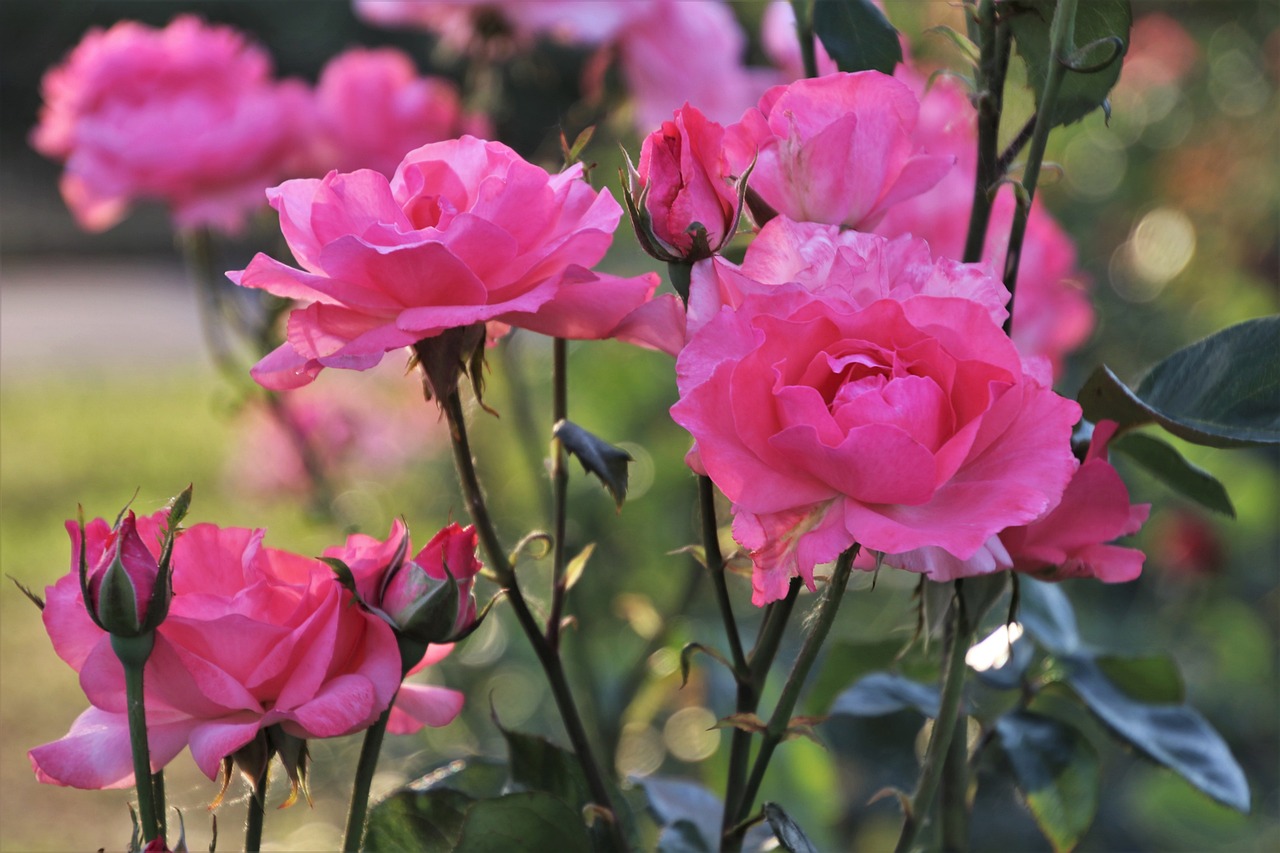Are you looking for a natural way to improve your mood and create a positive atmosphere in your home or office? Look no further than the power of plants! Certain plants have the amazing ability to positively impact our emotions and create a calming and uplifting environment. Whether you’re feeling stressed, anxious, or simply want to enhance your overall well-being, incorporating mood-enhancing plants into your space can make a significant difference.
So, what are the best plants for your mood and emotion? Let’s explore some of the top contenders:
- Aromatherapy Plants: Plants like lavender and jasmine are well-known for their soothing scents and calming effects. These aromatic plants can promote relaxation, reduce stress levels, and improve sleep quality.
- Air-Purifying Plants: Snake plant and peace lily are excellent choices when it comes to improving air quality. These plants have the ability to filter out toxins and release oxygen, creating a healthier environment and boosting your overall well-being.
- Productivity-Boosting Plants: If you’re looking to enhance focus and productivity in your workspace, consider plants like aloe vera and spider plant. These plants not only add a touch of greenery to your office but also help purify the air and create a more conducive environment for work.
- Mood-Enhancing Plants: Sunflowers and geraniums are known for their vibrant colors and uplifting properties. These plants can help combat feelings of sadness and promote happiness, making them perfect for brightening up your space.
- Stress-Relieving Plants: When it comes to reducing anxiety and promoting relaxation, chamomile and mint are excellent choices. These plants have calming effects and can help create a serene and stress-free environment.
By incorporating these mood-enhancing plants into your home or office, you can create a calming and uplifting atmosphere that positively impacts your mood and emotions. Whether you choose to place them on your desk, in the living room, or by your bedside, these plants will not only beautify your space but also contribute to your overall well-being.
Aromatherapy Plants
Are you looking for natural ways to relax and reduce stress? Look no further! Aromatherapy plants such as lavender and jasmine can work wonders in creating a soothing and calming atmosphere in your home or office.
Lavender, with its delicate purple flowers and sweet fragrance, has long been known for its calming properties. Its scent has been shown to reduce anxiety and promote relaxation, making it the perfect addition to your relaxation routine. Whether you choose to use lavender essential oil or have a potted lavender plant in your space, its aroma will envelop you in a sense of tranquility.
Jasmine, on the other hand, is known for its intoxicating floral scent that can instantly uplift your mood. This beautiful plant has been used for centuries to promote relaxation and reduce stress levels. Its scent has a calming effect on the nervous system, helping you unwind after a long day.
By incorporating these scented plants into your environment, you can create a serene and peaceful atmosphere that promotes relaxation and reduces stress. Whether you choose to have them in your bedroom, living room, or office, the power of aromatherapy plants like lavender and jasmine will have a positive impact on your mood and emotions.
Air-Purifying Plants
Air-purifying plants are a great addition to any indoor space as they not only add beauty but also have numerous benefits for your health. Plants such as snake plant and peace lily are known for their ability to improve air quality and create a healthier environment.
The snake plant, also known as Sansevieria, is a popular choice for air purification. It is highly effective in removing toxins such as formaldehyde, benzene, and trichloroethylene from the air. This plant is also known for its ability to convert carbon dioxide into oxygen, making it an excellent choice for bedrooms or any space where you spend a lot of time.
Peace lilies, on the other hand, are not only beautiful with their white flowers but also have air-purifying properties. They are known to remove harmful toxins like formaldehyde, benzene, and ammonia from the air, making it easier for you to breathe. These plants are also relatively low maintenance, making them perfect for beginners or those with busy schedules.
Having air-purifying plants in your home or office can have a significant impact on your overall well-being. They can reduce the risk of respiratory problems, allergies, and even improve your mood and productivity. So, why not bring some greenery into your space and enjoy the benefits of cleaner and healthier air?
Productivity-Boosting Plants
Are you looking to increase your focus and productivity in your workspace? Look no further than the power of plants. Certain plants, such as aloe vera and spider plants, have been shown to enhance concentration and improve cognitive function, making them the perfect addition to your office or study area.
Aloe vera: This versatile plant not only adds a touch of green to your workspace but also has numerous benefits for productivity. Aloe vera releases oxygen at night, which can improve air quality and help you feel more alert and focused during the day. Additionally, its soothing gel can provide natural relief for minor burns or skin irritations, ensuring you stay comfortable and distraction-free.
Spider plant: Known for its ability to purify the air, the spider plant is an excellent choice for boosting productivity. It filters out toxins, such as formaldehyde and benzene, commonly found in indoor environments, creating a cleaner and healthier workspace. Breathing in cleaner air can help you stay more energized and focused, allowing you to tackle tasks with greater efficiency.
By incorporating these productivity-boosting plants into your workspace, you can create a more conducive environment for concentration and efficiency. Whether it’s the oxygen-releasing properties of aloe vera or the air-purifying abilities of the spider plant, these plants can help you stay on top of your game and accomplish more throughout the day.
Mood-Enhancing Plants
Mood-enhancing plants have the incredible ability to uplift our spirits and bring joy to our lives. Sunflowers, with their bright and vibrant petals, are known to evoke feelings of happiness and positivity. These cheerful flowers can instantly brighten any space and create a warm and inviting atmosphere.
Geraniums, on the other hand, are renowned for their calming properties. Their soothing scent can help alleviate stress and anxiety, promoting a sense of peace and tranquility. Whether you choose to place them in your living room or bedroom, geraniums can create a serene environment that aids in relaxation and emotional well-being.
It’s fascinating how plants can have such a profound impact on our mood and emotions. By incorporating sunflowers and geraniums into your home or office, you can experience the transformative power of nature and enjoy a happier and more positive outlook on life.
Stress-Relieving Plants
Stress is a common part of our daily lives, but it’s important to find ways to manage and reduce it. One effective and natural way to alleviate stress is by incorporating stress-relieving plants into your environment. Plants like chamomile and mint have been known for their calming effects and ability to promote relaxation.
Chamomile, with its delicate white flowers and soothing fragrance, has long been used as a natural remedy for anxiety and stress. Drinking chamomile tea can help calm the mind and body, promoting a sense of tranquility. Additionally, having a chamomile plant in your home or office can provide a visual reminder to take a moment to relax and unwind.
Mint is another plant that can help reduce stress and promote relaxation. Its refreshing scent has a cooling effect on the mind and body, helping to ease tension and anxiety. You can enjoy the benefits of mint by using it in herbal teas, adding it to your bathwater, or simply placing a mint plant in your living space.
Both chamomile and mint are easy to care for and can thrive in indoor environments. They require moderate sunlight and regular watering. Consider adding these stress-relieving plants to your home or office to create a calming atmosphere and improve your overall well-being.
Indoor Gardening Tips
Indoor gardening can be a rewarding and therapeutic activity that not only adds beauty to your space but also enhances your mood and emotions. To ensure the health and vitality of your mood-enhancing plants, it’s important to follow some essential indoor gardening tips. Here are some practical pieces of advice to help you care for your plants:
- Watering: Different plants have different watering needs, so it’s crucial to understand the requirements of each plant. Some plants prefer moist soil, while others prefer drier conditions. Be sure to water your plants regularly, but avoid overwatering, as it can lead to root rot. A good rule of thumb is to check the moisture level of the soil before watering.
- Lighting: Light is essential for plant growth, so it’s important to provide adequate light to your indoor plants. Most mood-enhancing plants thrive in bright, indirect light. Place your plants near windows or provide artificial light sources, such as grow lights, if natural light is limited. Be mindful of the specific light requirements of each plant and adjust their placement accordingly.
- Placement: The location of your plants can greatly impact their growth and well-being. Consider the specific needs of each plant and find suitable spots in your home or office. Some plants may prefer higher humidity levels, while others may thrive in drier environments. Additionally, take into account the available space and ensure proper air circulation around your plants.
By following these indoor gardening tips, you can create an optimal environment for your mood-enhancing plants to flourish. Remember to monitor your plants regularly, check for signs of pests or diseases, and make adjustments to their care as needed. With proper care and attention, your indoor garden can become a haven of tranquility and beauty, providing you with a sense of peace and well-being.
Plants for Better Sleep
Are you struggling with getting a good night’s sleep? Look no further! Discover the power of certain plants that can improve sleep quality and create a soothing bedtime environment. Lavender and jasmine are two amazing plants known for their sleep-enhancing properties.
- Lavender: This beautiful purple plant is not only visually appealing but also has a calming scent that promotes relaxation. Its fragrance has been shown to reduce anxiety and improve sleep quality. Placing a lavender plant or using lavender essential oil in your bedroom can create a tranquil atmosphere, helping you drift off into a peaceful slumber.
- Jasmine: Known for its sweet and delicate fragrance, jasmine is another plant that can work wonders for your sleep. Its scent has been found to have sedative effects, reducing anxiety and promoting a deeper and more restful sleep. Having a jasmine plant near your bed or using jasmine essential oil can create a soothing bedtime environment, allowing you to wake up feeling refreshed and rejuvenated.
By incorporating these plants into your bedroom, you can create a sleep sanctuary that promotes relaxation and tranquility. Not only will they enhance the aesthetics of your space, but they will also have a positive impact on your sleep quality. So why wait? Embrace the power of nature and experience the benefits of lavender and jasmine for a better night’s sleep.
Natural Remedies for Insomnia
Are you tired of tossing and turning all night, struggling to fall asleep? Incorporating sleep-inducing plants into your bedroom can be a natural and effective solution to alleviate insomnia and promote a restful night’s sleep. These plants have soothing properties that can create a calming environment, helping you drift off to dreamland.
One such plant is lavender, renowned for its relaxing aroma. Placing a lavender plant or a few drops of lavender essential oil in your bedroom can help reduce anxiety and promote better sleep. Its gentle scent has been shown to lower heart rate and blood pressure, creating a tranquil atmosphere conducive to sleep.
Jasmine is another sleep-inducing plant that can work wonders for insomnia. Its sweet fragrance has been found to have sedative effects, promoting a deeper and more restorative sleep. Consider placing a jasmine plant near your bed or using jasmine essential oil in a diffuser to experience its calming benefits.
In addition to lavender and jasmine, other plants such as aloe vera and snake plant can also contribute to a good night’s sleep. Aloe vera releases oxygen at night, improving air quality and helping you breathe easier as you sleep. Snake plant, on the other hand, filters out toxins from the air, creating a cleaner and healthier environment in your bedroom.
By incorporating these sleep-inducing plants into your bedroom, you can create a peaceful sanctuary that promotes relaxation and rest. Say goodbye to sleepless nights and embrace the soothing power of nature.
Creating a Tranquil Oasis
Creating a tranquil oasis in your home is easier than you think. By incorporating different plant varieties and arrangement ideas, you can transform your space into a calming and peaceful haven that promotes relaxation and serenity.
When it comes to choosing plant varieties for your tranquil oasis, consider options such as peace lilies, ferns, and snake plants. These plants not only add a touch of greenery to your space but also have air-purifying properties, helping to create a healthier environment.
Arrangement ideas are also important in creating a tranquil oasis. Consider grouping plants together in clusters to create a lush and vibrant display. You can also experiment with different heights and textures to add visual interest. Don’t be afraid to get creative and try out different combinations until you find the perfect arrangement that brings a sense of calm to your space.
In addition to plants, you can also incorporate other elements to enhance the tranquil atmosphere. Soft lighting, soothing music, and comfortable seating can all contribute to creating a peaceful ambiance. Consider adding a water feature, such as a small tabletop fountain, to introduce the calming sound of running water.
Remember, creating a tranquil oasis is all about creating a space that promotes relaxation and serenity. Experiment with different plant varieties and arrangement ideas, and don’t forget to add other elements that contribute to a peaceful atmosphere. With a little creativity and attention to detail, you can transform your home into a haven of tranquility.
Frequently Asked Questions
- What are aromatherapy plants?
Aromatherapy plants are plants that release pleasant scents that can promote relaxation and reduce stress levels. Examples of aromatherapy plants include lavender and jasmine.
- How do air-purifying plants benefit the environment?
Air-purifying plants, such as snake plant and peace lily, help improve air quality by removing toxins and releasing oxygen. This creates a healthier environment and can have a positive impact on your overall well-being.
- Can plants really enhance productivity?
Yes, certain plants like aloe vera and spider plant have been shown to enhance focus and productivity. Their presence in your workspace can help create a more stimulating and conducive environment for work.
- Which plants can help improve mood?
Plants like sunflowers and geraniums have mood-enhancing properties. Their vibrant colors and uplifting scents can help combat feelings of sadness and promote happiness.
- Do plants have any stress-relieving effects?
Absolutely! Plants such as chamomile and mint have calming effects that can reduce anxiety and promote relaxation. Incorporating them into your living or working space can help create a more soothing atmosphere.
- What are some indoor gardening tips?
For your mood-enhancing plants, it’s important to provide them with proper care. This includes watering them regularly, ensuring they have adequate lighting, and placing them in suitable locations based on their specific needs.
- Which plants are recommended for better sleep?
Lavender and jasmine are known for their sleep-enhancing properties. These plants can create a soothing and calming environment in your bedroom, promoting better sleep quality.
- Can plants help with insomnia?
Yes, incorporating sleep-inducing plants into your bedroom can help alleviate insomnia. Their calming scents and natural properties can contribute to a more restful night’s sleep.
- How can I create a tranquil oasis in my home?
You can create a tranquil oasis by selecting different plant varieties and arranging them in a way that promotes relaxation and serenity. Experiment with different combinations and find what works best for you.










